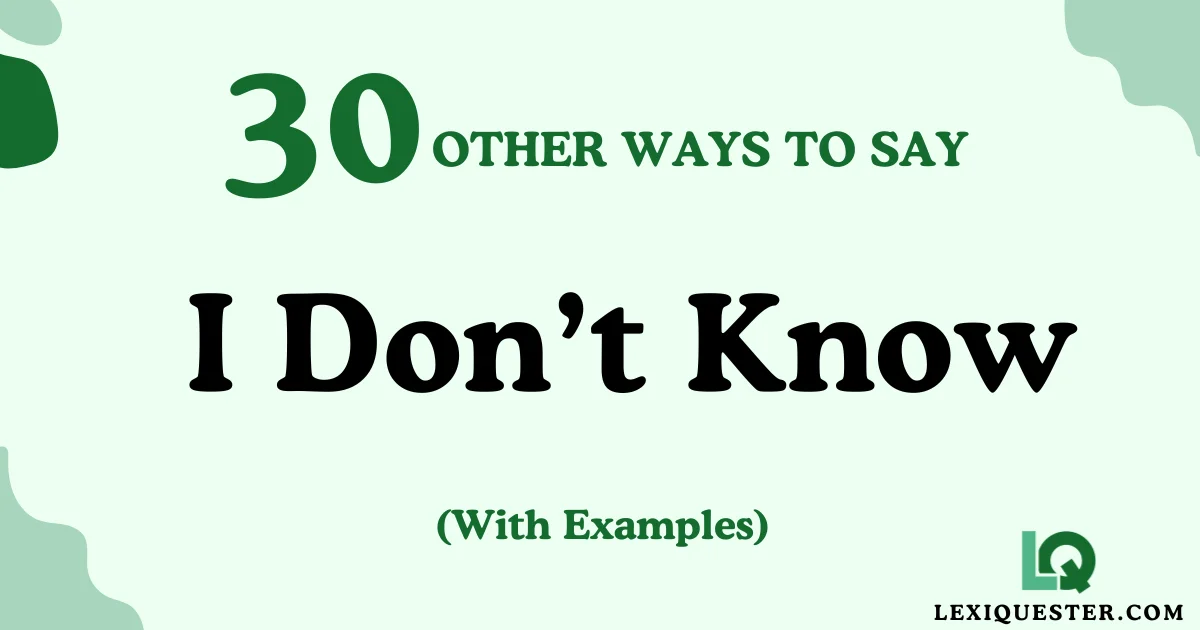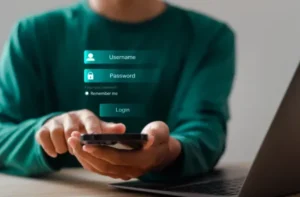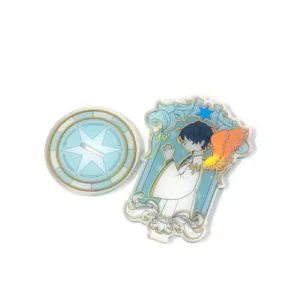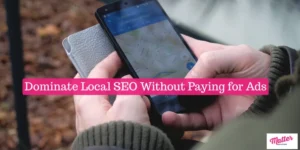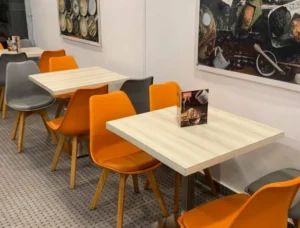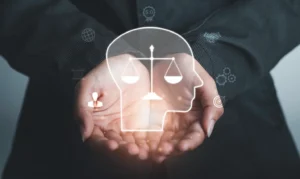In both personal and professional conversations, we often need to express uncertainty or lack of information. Using alternatives to the straightforward “I don’t know” can soften the message and make the response feel more engaged, caring, and respectful.
Here are 30 thoughtful alternatives that can help you express uncertainty warmly and professionally.
What Does “I Don’t Know” Mean?
The phrase “I don’t know” simply indicates a lack of knowledge, clarity, or certainty on a particular subject. Although it’s a common and clear response, it can sometimes sound abrupt or impersonal, especially in professional contexts.
When to Use “I Don’t Know”
“I don’t know” or its alternatives can be used whenever you’re uncertain about a question, fact, or situation. In work settings, client interactions, and even casual conversations, softer or more informative alternatives can help convey your intention to be helpful, even if you don’t currently have the answers.
Is It Professional/Polite to Say “I Don’t Know”?
While saying “I don’t know” is certainly acceptable and honest, it may sometimes come across as dismissive or uninterested. Using more polite, thoughtful alternatives shows that you’re engaged in the conversation and willing to help even if you’re not fully certain about the answer.
I Don’t Know Synonyms:
- Let Me Check and Get Back to You
- I’ll Look Into It
- I’m Not Certain, But I Can Find Out
- That’s a Great Question; I’ll Need to Do Some Research
- I Haven’t Come Across That Before
- I’ll Double-Check on That
- Let’s Look into That Together
- I Wish I Knew the Answer Right Now
- I’ll Find Out and Let You Know
- That’s Beyond My Expertise Right Now
- I’m Not Sure, But Here’s My Best Guess
- Let Me Connect You with Someone Who Can Help
- I’m Still Learning About That
- I Don’t Have That Information Right Now
- I’ll Keep You Posted as I Learn More
- That’s Something I’ll Need to Investigate
- It’s Hard to Say Without More Information
- Let Me Gather More Details First
- I Don’t Have an Immediate Answer
- I’m Not Clear on That
- I’ll Look into This More Closely
- I’m Not Able to Answer Right Now
- I Don’t Have Enough Information at the Moment
- I’ll Need to Look That Up
- I Haven’t Had the Chance to Explore That
- I’ll Do My Best to Find Out
- I Don’t Have That Right Now, But I Can Find It
- I Can’t Say Off the Top of My Head
- That’s Something I’ll Need to Confirm
- I’ll Need to Consult My Team
1. Let Me Check and Get Back to You
Meaning: I’ll look into it and follow up with an answer
Explanation: Shows willingness to find the answer rather than leaving the question open-ended.
Example: “I’m not sure, but let me check and get back to you on that.”
Tone: Helpful and proactive
2. I’ll Look Into It
Meaning: I’ll investigate or research the topic
Explanation: Suggest that you’ll take action to find out more.
Example: “I don’t have that information right now, but I’ll look into it.”
Tone: Professional and diligent
3. I’m Not Certain, But I Can Find Out
Meaning: Not sure but willing to find the answer
Explanation: Conveys honesty about uncertainty while showing a readiness to help.
Example: “I’m not certain, but I can find out for you.”
Tone: Honest and helpful
4. That’s a Great Question; I’ll Need to Do Some Research
Meaning: The question is good, and I’ll need more time to answer
Explanation: Compliments the question while being transparent about needing time.
Example: “That’s a great question; I’ll need to do some research to give you a full answer.”
Tone: Positive and appreciative
5. I Haven’t Come Across That Before
Meaning: I’m unfamiliar with that information
Explanation: A respectful way to indicate inexperience with the topic.
Example: “I haven’t come across that before, but I’m happy to learn more.”
Tone: Curious and open
6. I’ll Double-Check on That
Meaning: I’ll verify the information
Explanation: Shows your intention to confirm details before providing an answer.
Example: “I’m not 100% sure, so I’ll double-check on that for you.”
Tone: Cautious and attentive
7. Let’s Look into That Together
Meaning: Suggests collaboration in finding the answer
Explanation: Invites the other person into a joint exploration.
Example: “I’m not sure, but let’s look into that together.”
Tone: Collaborative and engaging
8. I Wish I Knew the Answer Right Now
Meaning: You don’t know but would like to be helpful
Explanation: Acknowledges your uncertainty with a sense of empathy.
Example: “I wish I knew the answer right now, but I’ll try to find out.”
Tone: Warm and understanding
9. I’ll Find Out and Let You Know
Meaning: You’ll take the time to gather information
Explanation: Reassure the recipient that you’ll return with an answer.
Example: “I’ll find out and let you know as soon as possible.”
Tone: Positive and dependable
10. That’s Beyond My Expertise Right Now
Meaning: It’s outside your current knowledge area
Explanation: Acknowledge that the topic is outside your expertise without dismissing it.
Example: “That’s beyond my expertise right now, but I can ask someone more familiar.”
Tone: Honest and respectful
11. I’m Not Sure, But Here’s My Best Guess
Meaning: You’re uncertain but willing to offer an idea
Explanation: Prefaces your response with a disclaimer.
Example: “I’m not sure, but here’s my best guess based on what I know.”
Tone: Open and approachable
12. Let Me Connect You with Someone Who Can Help
Meaning: Referring to someone more knowledgeable
Explanation: A courteous way to redirect when you don’t have the answer.
Example: “I’m not certain, but let me connect you with someone who can help.”
Tone: Professional and helpful
13. I’m Still Learning About That
Meaning: You’re not yet knowledgeable on the topic
Explanation: Shows humility and a willingness to grow.
Example: “I’m still learning about that, but I’ll do my best to find out.”
Tone: Humble and eager
14. I Don’t Have That Information Right Now
Meaning: You don’t currently possess the details
Explanation: Suggests that you may be able to provide the information later.
Example: “I don’t have that information right now, but I’ll look into it.”
Tone: Professional and straightforward
15. I’ll Keep You Posted as I Learn More
Meaning: You’ll provide updates as you learn
Explanation: Implies that you’re committed to sharing information when available.
Example: “I’ll keep you posted as I learn more about this.”
Tone: Reliable and considerate
16. That’s Something I’ll Need to Investigate
Meaning: The topic requires further investigation
Explanation: Suggests you’ll need time to dig into the details.
Example: “That’s something I’ll need to investigate, and I’ll follow up.”
Tone: Inquisitive and diligent
17. It’s Hard to Say Without More Information
Meaning: Not enough context to provide an answer
Explanation: A tactful way to suggest additional information may be needed.
Example: “It’s hard to say without more information, but I’ll see what I can find out.”
Tone: Thoughtful and insightful
18. Let Me Gather More Details First
Meaning: You need time to collect more information
Explanation: Shows intention to collect comprehensive information.
Example: “Let me gather more details first, and I’ll get back to you.”
Tone: Professional and thorough
19. I Don’t Have an Immediate Answer
Meaning: You can’t answer right now but may follow up later
Explanation: Gives transparency about your immediate uncertainty.
Example: “I don’t have an immediate answer, but I’ll follow up once I do.”
Tone: Honest and calm
20. I’m Not Clear on That
Meaning: You’re unsure or need clarification
Explanation: A softer way of saying you’re uncertain.
Example: “I’m not clear on that, but let’s see what we can find.”
Tone: Friendly and honest
21. I’ll Look into This More Closely
Meaning: I’ll examine it in greater depth
Explanation: Shows commitment to finding out the specifics.
Example: “I’ll look into this more closely and circle back.”
Tone: Professional and committed
22. I’m Not Able to Answer Right Now
Meaning: You can’t answer at the moment but might be able to later
Explanation: Emphasizes current inability without shutting down future possibilities.
Example: “I’m not able to answer right now, but I’ll keep it in mind.”
Tone: Neutral and open
23. I Don’t Have Enough Information at the Moment
Meaning: The current information isn’t sufficient to answer
Explanation: Acknowledge that you’d need more context to provide a solid answer.
Example: “I don’t have enough information at the moment, but I’ll work on getting it.”
Tone: Polite and practical
24. I’ll Need to Look That Up
Meaning: You need time to find specific details
Explanation: A candid way to express that you’ll need to search for the answer.
Example: “I’ll need to look that up and get back to you.”
Tone: Honest and down-to-earth
25. I Haven’t Had the Chance to Explore That
Meaning: You haven’t yet investigated that topic
Explanation: A soft way to show inexperience in the subject.
Example: “I haven’t had the chance to explore that, but I’m happy to dig deeper.”
Tone: Friendly and eager
26. I’ll Do My Best to Find Out
Meaning: You’re unsure but will try to get an answer
Explanation: Shows a proactive attitude to resolving the uncertainty.
Example: “I’ll do my best to find out and let you know.”
Tone: Encouraging and committed
27. I Don’t Have That Right Now, But I Can Find It
Meaning: Lacks information now but can look it up
Explanation: Keeps the door open to follow-up.
Example: “I don’t have that information right now, but I can find it for you.”
Tone: Professional and considerate
28. I Can’t Say Off the Top of My Head
Meaning: You don’t have an immediate answer
Explanation: Implies it’s not something you remember but could look up.
Example: “I can’t say off the top of my head, but I’ll get back to you.”
Tone: Casual and honest
29. That’s Something I’ll Need to Confirm
Meaning: Uncertain and needs verification
Explanation: Acknowledges your need to validate details.
Example: “That’s something I’ll need to confirm before I can give you a solid answer.”
Tone: Cautious and responsible
30. I’ll Need to Consult My Team
Meaning: You’ll ask colleagues for more knowledge
Explanation: Indicates you’ll seek the insights of others.
Example: “I’ll need to consult my team and get back to you with a full answer.”
Tone: Professional and collaborative
Conclusion
Each of these alternatives to “I don’t know” provides a unique way to show your openness and commitment to finding the answer. By choosing phrases that sound thoughtful and caring, you can maintain professionalism and empathy in your responses.
Recent Posts
- 30 Other Ways to Say “In Conclusion” (With Examples)
- 30 Other Ways to Say “Calm Your Tits” (With Examples)
- 30 Other Ways to Say “Happy To Help” (With Examples)
- 30 Other Ways to Say “Thank You For Your Quick Response” (With Examples)
- 30 Other Ways to Say “Keep up The Great Work” (With Examples)
- 30 Other Ways to Say “I Miss You” (With Examples)

Sophia Lee is a passionate writer and the creative force behind LexiQuester, a space dedicated to the wonders of language and expression. She loves crafting meaningful content that enlightens and inspires readers. In her free time, Sophia enjoys exploring cultures, stories, and the art of communication.
